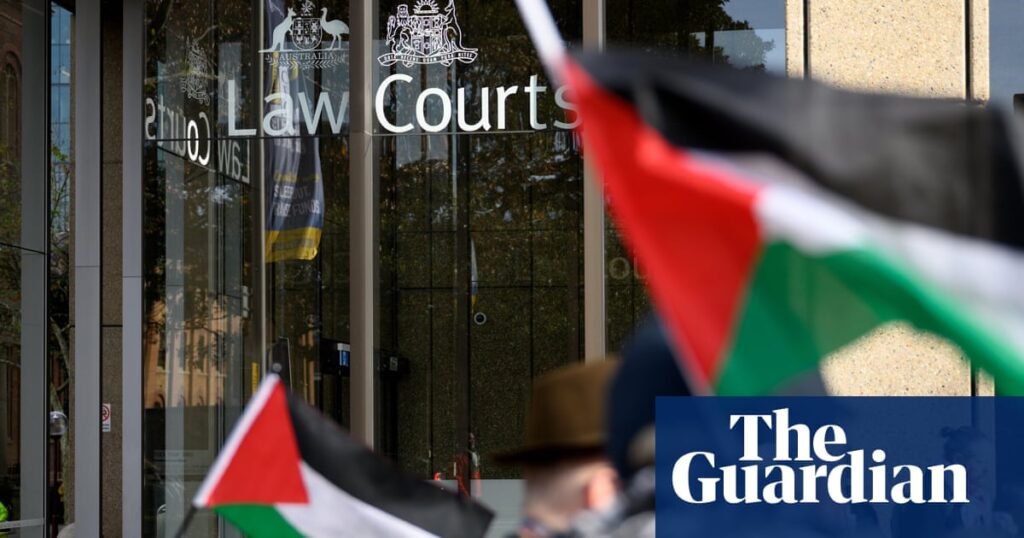
A protest outside a Sydney synagogue, which served as the catalyst for New South Wales’ new anti-protest laws aimed at curbing antisemitism, was actually targeting an event featuring an Israel Defense Forces speaker, according to a court hearing. The Palestine Action Group is challenging these laws in the NSW Supreme Court, arguing they infringe on constitutional freedoms.
The protest, which took place outside the Great Synagogue in early December 2024, was described by the group’s barrister, Felicity Graham, as a political event rather than a religious one. Graham stated that the event was organized by the Technion, where a member of the Israel Defense Forces was scheduled to speak. This challenge is directed against the expanded police powers granted by the laws, which make it an offense to obstruct or intimidate individuals near places of worship.
Background and Legislative Context
The laws in question were part of a series of reforms passed in February following a series of antisemitic attacks, including the discovery of a caravan loaded with explosives on Sydney’s outskirts. However, the Australian Federal Police later suggested these incidents were orchestrated by organized crime to divert resources and influence legal proceedings.
Josh Lees, representing the Palestine Action Group, filed the legal challenge after these revelations. A parliamentary inquiry, supported by multiple political factions, is also investigating what Premier Chris Minns and his cabinet knew about the incidents before the legislation was enacted.
Debate Over Legislative Intent
During a parliamentary debate, NSW Labor MP Stephen Lawrence argued that using the synagogue protest as a catalyst indicated the bill’s true intent differed from government claims. Meanwhile, Labor MP Anthony D’Adam noted that the event was organized by the Israel Institute of Technology to celebrate its centenary and featured a speaker from the Israel Defense Forces.
“It was platforming a recently returned Israel Defense Forces member who was going to share their experiences of being on duty, presumably involved in the conflict in Gaza,” D’Adam stated.
Prime Minister Anthony Albanese expressed his support for Premier Minns’ stance, questioning the rationale behind protesting outside the synagogue.
Legal Arguments and Implications
The Palestine Action Group contends that the law is unconstitutional as it burdens the implied constitutional freedom of communication on political matters. Craig Lenehan SC, representing the group, argued that the law’s vagueness has a chilling effect, leaving protesters and police uncertain about the extent of their powers.
The law exempts protests approved by police through a form 1 application, which can take several days to process. The court heard that the police have discretion over what constitutes “in or near” a place of worship, potentially expanding their powers at major protest sites like Town Hall and Hyde Park.
“There’s a stark contrast between the word ‘near’ and the terms ‘occurring at or outside’,” Graham said. “‘Near’ is a broad and elastic term.”
Representing the state, Michael Sexton SC argued that the laws serve a legitimate purpose of protecting religious communities from obstruction and harassment. He maintained that the “in or near” wording was specific to these instances, ensuring that religious practices are not impeded.
Courtroom Developments
Graham urged the court to reject the argument that police powers are limited to instances of intimidation or harassment, stating that this interpretation does not align with the legislation’s text or intent. Justice Anna Mitchelmore has reserved her decision on the matter.
Parliamentary Inquiry and Political Reactions
Meanwhile, the parliamentary inquiry into the Dural caravan incident is set to resume, with five staffers from the Minns government summoned to testify. Despite the summons, Premier Minns announced that his staff would not appear, citing the inquiry as a “fishing expedition” based on conspiracy theories.
“One of the staff that’s been asked to give evidence was on his honeymoon during this alleged period,” Minns told reporters.
Minns criticized the inquiry as a deterrent for young individuals considering a career in the NSW government, suggesting it was an attempt to mislead parliament.
The outcome of both the court challenge and the parliamentary inquiry could have significant implications for protest laws and political accountability in New South Wales. As the legal and political battles unfold, the broader conversation about the balance between security and civil liberties continues to resonate across the state.






